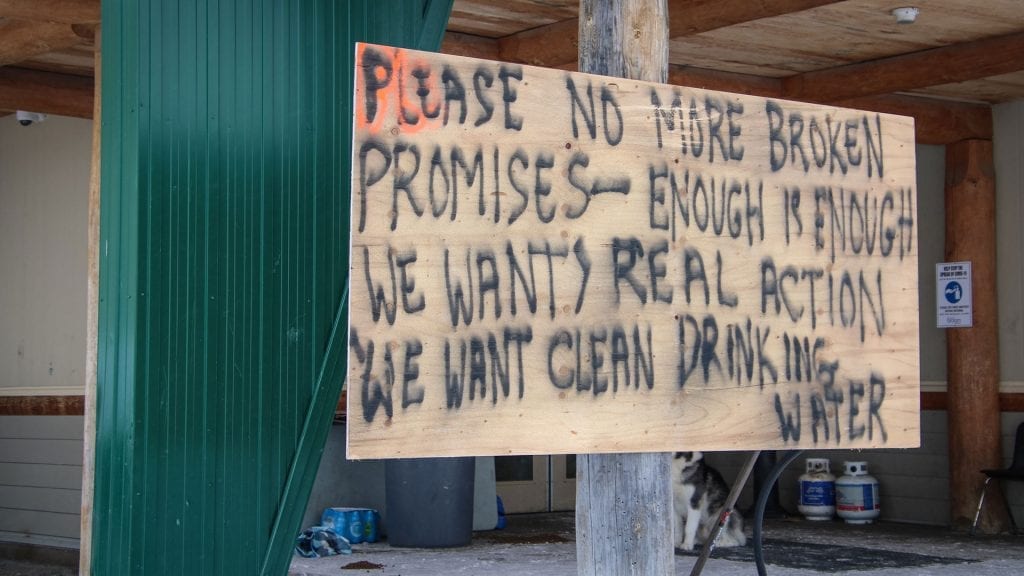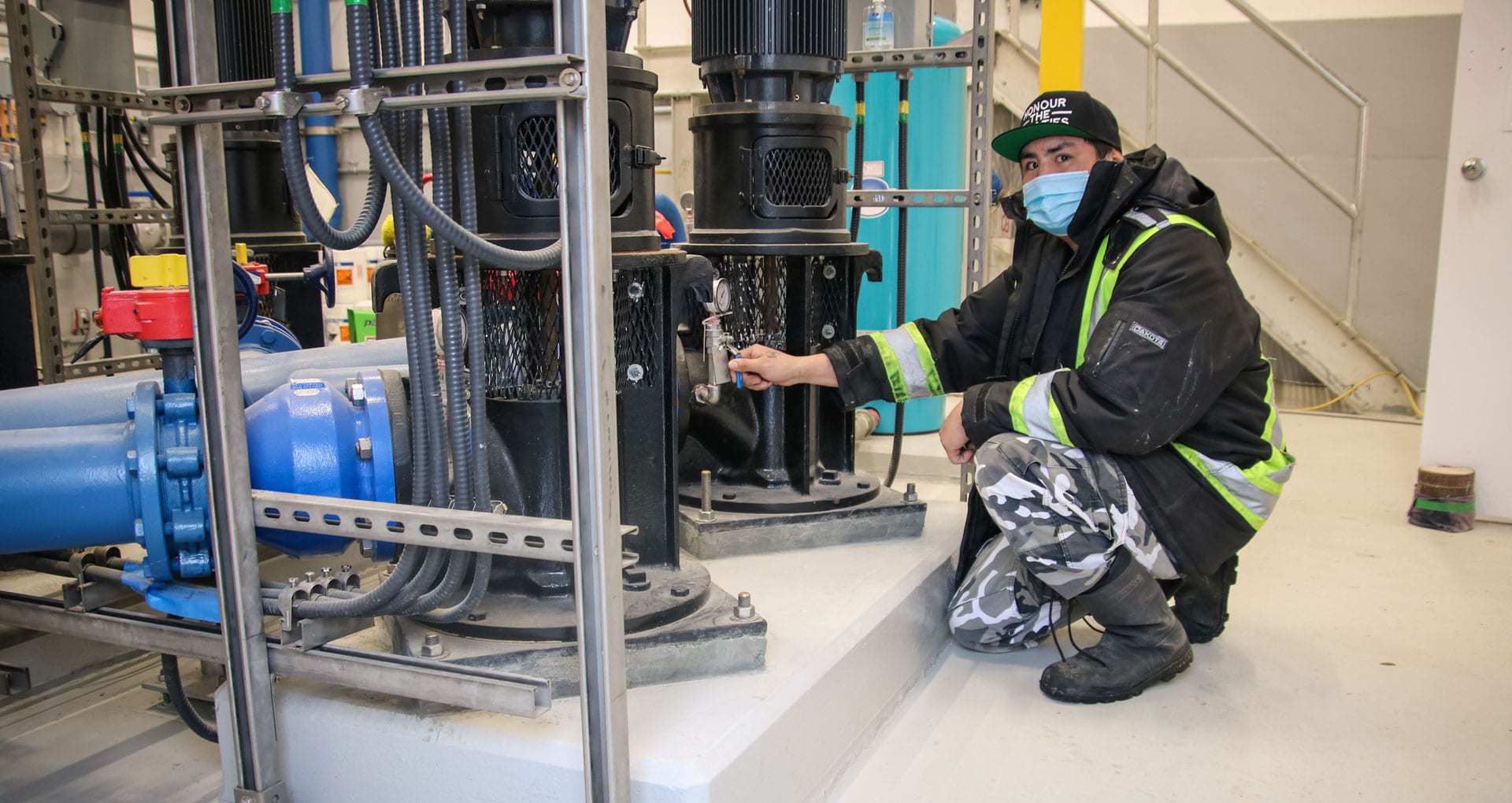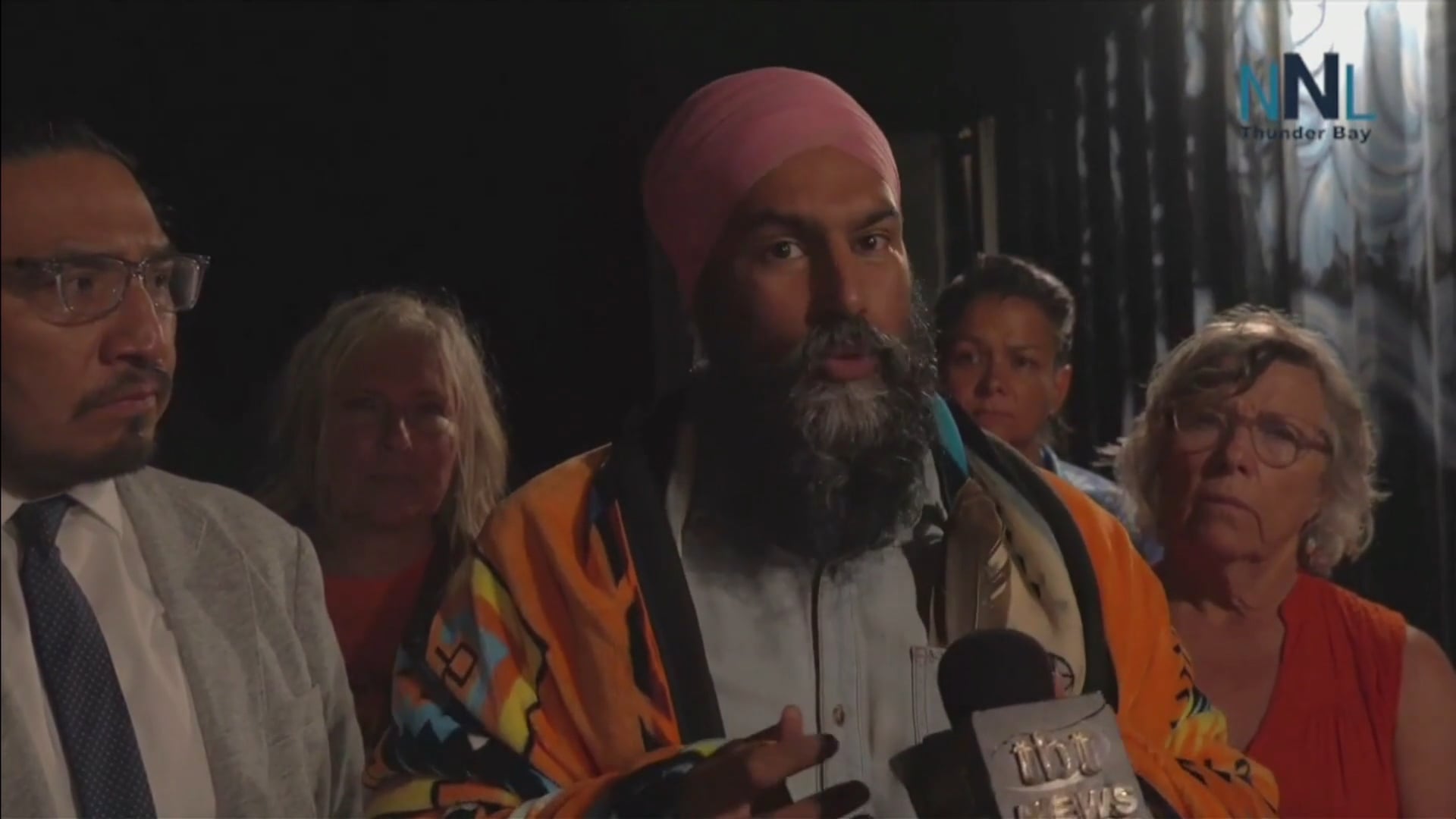
A sign posted in Neskantaga outlining the feelings of the community. Photo: Olivia Stefanovich/Media pool.
The Canadian government and First Nations leaders have reached a proposed settlement of a national class-action lawsuit over the lack of potable water on reserves, Indigenous Services Minister Marc Miller announced Friday.
The deal, which remains to be finalized, would be worth nearly $8 billion. Of this, $1.5 billion would go to compensating 142,000 people from 258 First Nations across the country who’ve had to consume unsafe water. Ottawa would also spend at least $6 billion to ensure reliable access to clean water on reserves.
“Our commitment is to ensure that all First Nations communities have access to clean, safe and reliable drinking water,” Miller said. “This remains the same and expanded from the commitment made in in 2015.”
The settlement would include the creation of a First Nations Advisory Committee on Safe Drinking Water and $400 million to establish a First Nation Economic and Cultural Restoration Fund. It includes a plan to modernize First Nations drinking water legislation. This process has already been underway.
The three lead plaintiffs joined Miller for the virtual announcement. Curve Lake First Nation Chief Emily Whetung and then Neskantaga chief Chris Moonias filed a class action in Federal Court in 2019.

Tataskweyak Cree Nation Chief Doreen Spence filed a class action in the Manitoba Court of Queen’s Bench that same year. The suits had since combined and were recently proceeding in court as one. Both were certified in 2020.
Neskantaga in northern Ontario has been under a drinking water advisory since 1995. Many community members have gone their entire lives without having access to clean water, current Chief Wayne Moonias said during the press conference.
“Why does this have to happen? Why did we have to sue the government in order to get this thing to where it is today?” he said. “We have suffered so much, we have lost so much, we have endured so much. But yet our community continues to be resilient. We know how hard it is if you don’t have the basic necessities of life.”
Curve Lake is near Peterborough in southern Ontario. It’s a community surrounded by water, but many community members have had to move away to access clean water, according to Whetung’s court affidavit.
She told the press conference she assumed office in 2019 with a mandate to bring clean water to the community, which has had to pay to truck in water when wells decline.
“We have made a difference,” Whetung said Friday. “We’ve reached an agreement that contains commitments to deliver the quality and the quantity of water that most Canadians take for granted. We’ve reached an agreement with enforceable timelines.”
Spence got emotional when discussing the situation in her community in northern Manitoba. It draws water from Split Lake, which, according to her court filings, is contaminated with toxic blue-green algae.
“We fall ill from drinking the water, even after it has been treated, and children develop rashes when they bathe in it,” she said in a May 12, 2020 letter urging Ottawa not to fight certification. “This is a tragedy unfolding before our eyes.”

Meanwhile, NDP Leader Jagmeet Singh was in Neskantaga earlier this week, suggesting access to clean water is poised to become an election issue if one is called in the coming months.
NDP MP Charlie Angus condemned the “brutal indifference of the federal government to basic rights of families to live with safe water” in a Monday release.
The class-action settlement is subject to court approval and, the Justice Department said during the news conference, some details remain to be negotiated.
Prime Minister Justin Trudeau pledged to get clean water to First Nations by the end of March 2021, a deadline now well in the rear-view mirror. Fifty-one long-term advisories remained in effect in 32 communities as of June 16.
The Liberals have invested more than $4 billion in achieving clean water on reserves.
Asked if he had any regrets about how his government handled this file, Miller pointed to these investments and progress made. The Liberals have declined to offer a new deadline for lifting remaining water advisories.
“I regret that we were in this situation in the first place,” Miller said.









